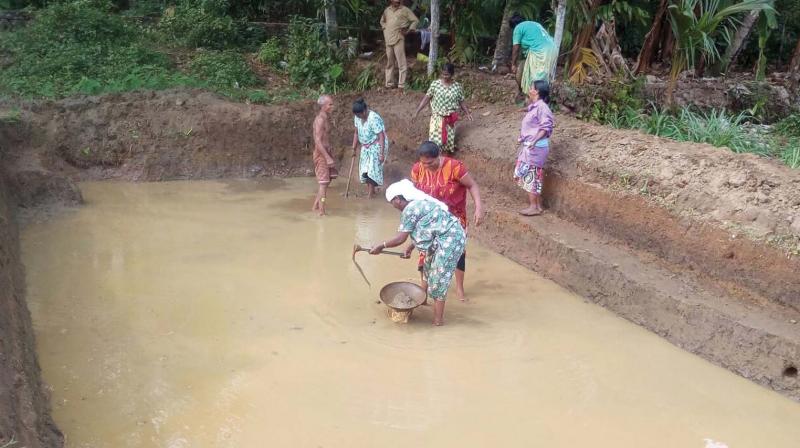Kerala: Call to build farm ponds to fight drought
Over the years, this hilly area was irrigated by the Pamba Irrigation project (PIP) during the summer (March- May).

ALAPPUZHA: With the shrinking level of rainfall in successive years, Chengannur has been in the list of drought-hit areas for quite a few years. Even under such dire drought conditions, the residents of Chengannur have managed to conserve water through farm ponds.
Since continuous water availability is a must for agriculture in the area, preserving and maintaining a perennial water source is of utmost importance. Over the years, this hilly area was irrigated by the Pamba Irrigation project (PIP) during the summer (March- May). However, during last summer, the farmers of Chengannur cursed this river water project after it failed to provide water due to canal collapse in Vadasserikara of Pathanamthitta district.
Realising the advantage of farm ponds, the Chengannurites have dug 105 ponds so far as compared to 160 last summer season. Karthika Anil, accredited engineer, MGNREG Scheme of the Chengannur block panchayath, is happy that ponds still have some water in spite of the scorching heat. She is now persuading residents to dig more ponds this year.
She says the concept of farm ponds was included as one of the focal areas in the National Rural Employment Guarantee (NREG) Scheme last year. "Farm ponds came to our attention after many residents in the area began facing a crisis due to drought and failure of water projects. The wells in the houses became empty. And farmers started facing a big loss,” she points out.
According to the official details, the number of ponds dug up this year in Budhanoor panchayath is 45 followed by Puliyoor (28), Pandanad (16), Venmony (5), Ala (4) , Cheriyanad( 4), and Mulakkuzha (3). Meanwhile, the number of farm ponds constructed across the district this year is 521.
Vijayakumar, Joint Programme Coordinator (JPC), MGNREG Scheme in the district, says they had managed to dig up not only 521 new wells but also 1391 ponds had been deepened this year so far. Apart from this, 152 new wells were constructed, he said.
“Farmponds not only retain water for a long time thus irrigating farmlands but also maintain biodiversity,” says Dr K.G. Padmakumar, Director, International Research and Training Centre for Below Sea level Farming. “In the past every field used to have at least a Thalakkulam (head ponds) . But this tradition collapsed following the introduction of river water projects. Constructing farmponds is imperative in this climatic condition. Because it is estimated that one acre of pond is equal to100-acres of forest in terms of carbon absorption. Much of the rainfall runs off the ground. The runoff does not only cause loss of water but it also washes away precious top soil,” he points out.

